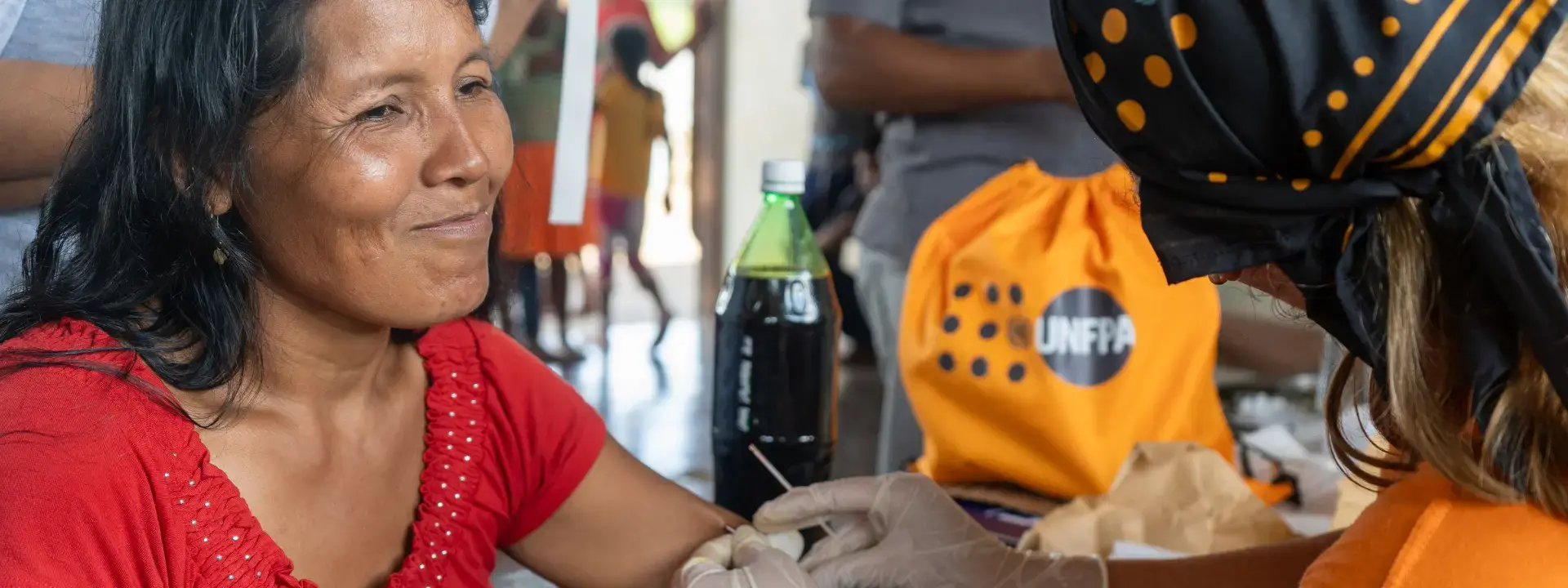Working to Make Every Pregnancy Wanted
A well informed woman is an empowered woman, capable of determining her future. With access to family planning, she has the opportunity to break barriers such as poverty and gender inequality, as well as significantly prevent complications to her health. The needs, aspirations, and circumstances of each woman are factors based on human rights and they must be respected to ensure her free and responsible choice about if, when and how many children to have.
Family planning is a human right and, therefore, must be available to all who wish to exercise it. However, the reality is that this right is not accessible to everyone, especially those living in vulnerable conditions. Barriers such as the quality and availability of supplies and services, along with socioeconomic limitations, are part of a persistent issue we urgently need to overcome.
More than 220 million women in developing countries who do not wish to become pregnant lack access to effective contraceptive methods and voluntary family planning information and services. It has been reported that around 80 million women have had an unintended pregnancy, and at least one in four has resorted to an abortion that has put her life at risk. Family planning reduces unintended pregnancy rates and, in turn, the need for unsafe abortions, which account for 13% of global maternal mortality.
Lack of access to family planning violates the right to health for all women, particularly adolescents, who are more likely to die during childbirth or to give birth to a premature or low-birthweight baby. When they learn they are pregnant, many adolescents drop out of school, which undermines their opportunities to study, develop, and enter the labor market – impacting not only themselves, but their families and communities as well.
Our Challenge
In the area of family planning, Latin America and the Caribbean face a significant challenge that must be addressed to improve the security of reproductive health product supplies, including contraceptives. Additionally, it is essential that the quality of services be high so that women who use family planning services can access them consistently and avoid the unfortunate consequences of discontinued use. To achieve this, sexual and reproductive health service providers must guarantee the quality of the services they offer.
Part of the challenge in family planning is the need to offer services more in tune with changes in sexual behavior. A wider range of method combinations, personalized hormone dosages, and the availability of female condoms are some examples of the needs women have today. There is also a need to include voluntary surgical methods for men, and to address the needs of adolescents in the context of decreasing average ages of first sexual activity and changing cultural patterns (fewer stable partnerships, more sexual partners). These trends add new complexity to family planning services.
The Opportunity
In Latin America and the Caribbean, the percentage of women aged 15 to 49 who are married or in a partnership and have unmet needs for family planning is 10% in Latin America and 17% in the Caribbean. The prevalence of any type of contraceptive use is 74% in Latin America and 61% in the Caribbean. The use of modern contraceptive methods stands at 67%.
New communication trends are powerful tools for transforming culture, starting with young people, by giving them vital information and access to both appropriate contraceptive methods and comprehensive sexuality education. Although adolescent births have decreased in Latin America, the number remains significant – there are, on average, 80 births per 1,000 young women per year.
Our Strategy
In 2013, UNFPA launched a strategy titled "Choices, Not Chance", which remained in effect through 2020. It outlines the organization's framework, which – together with government efforts and private sector partnerships – supports countries in achieving universal access to voluntary, human rights-based family planning.
The aim is to promote and support quality family planning services that ensure rights such as access to information and methods, so individuals can make informed choices regarding family planning.
UNFPA contributes to global commitments that significantly enhance people's ability to have children by choice – not by chance – transforming lives, communities, and countries by making reproductive health universally accessible.
Since its inception, the United Nations Population Fund has played a crucial role in halving the global fertility rate, responding to the requests of developing countries to support the progress and implementation of voluntary family planning programs and policies. This effort contributes to a world where every pregnancy is wanted – fulfilling an international commitment to protect the rights of every woman, man, and young person to make one of life's most fundamental decisions.
Key Highlights:
Choices Not Chance: UNFPA Family Planning Strategy 2012–2020
Global Programme for Reproductive Health Commodity Security
Additional Resources:
What is the Global Programme for Reproductive Health Commodity Security?


